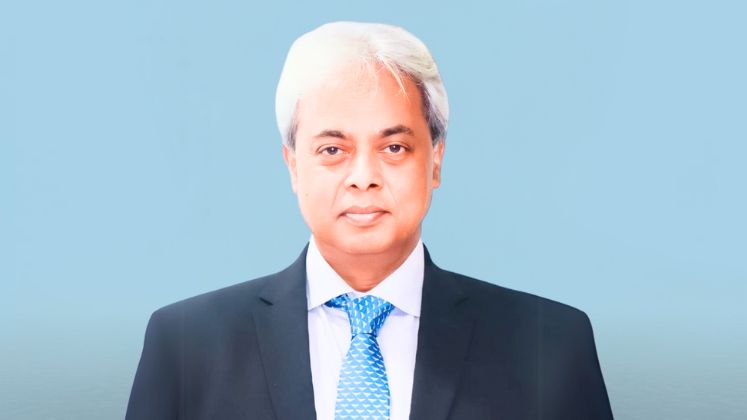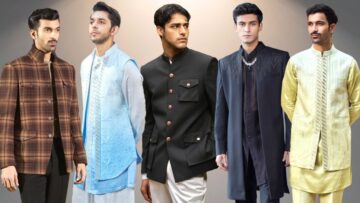Export Promotion Bureau (EPB) is instrumental in promoting and facilitating Bangladesh’s exports in the global market. In an in-depth interview with Apparel Resources (AR), Md. Anwar Hossain, who joined as CEO and Vice-Chairman of the EPB four months back and has been recently appointed as Administrator of the BGMEA, shared valuable insights into Bangladesh’s current export landscape. He discussed various aspects like the impact of digitalisation on the export sector, the implications of LDC graduation and solutions to the key challenges facing RMG and leather industries.
AR: How do you envision the export scenario of Bangladesh in the short- and long-term?
Anwar Hossain: Currently, the export sector faces short-term challenges due to inflationary pressures and economic uncertainties in major markets like the EU and the US and geopolitical conflicts like the Red Sea crisis. However, our RMG sector continues to adapt, focusing on eco-friendly production and quality standards which are essential for market entry. Looking ahead, there’s hope for long-term growth if we diversify beyond RMG into sectors such as leather goods, jute products, agroprocessing, IT services, pharmaceuticals and engineering goods. By adopting sustainable manufacturing practices, we can enhance our competitive edge. The EPB will support this transition with guidance, resources and increased international exposure through trade fairs and partnerships.
AR: It’s more than four months since you have been in this position. How has your experience been at the EPB so far and what challenges have you encountered?
Anwar Hossain: My journey at EPB has been both rewarding and challenging. I have gained insights into the critical role of EPB amidst global competition. The major focus is on digitisation in service delivery—streamlining processes and enhancing transparency to better support exporters. Working with a skilled team has enabled us to tackle challenges effectively, making it fulfilling to contribute to initiatives that bolster Bangladesh’s global trade presence.
AR: The Bangladeshi export sector is facing many challenges. How does the EPB plan to address them?
Anwar Hossain: The main challenges include adapting to shifting global trade dynamics, sustainability standards and logistical bottlenecks. The volatility in demand from key markets and the necessity for product diversification further complicate the situation. To address these issues, the EPB is taking a multifaceted approach by supporting exporters in meeting international sustainability standards through training and resources. Along with RMG, we’re also promoting emerging sectors, investing in digital transformation to improve service efficiency and exploring logistical improvements to facilitate smoother export operations. We are also implementing digital systems to track the progress of ESG in the industry. BGMEA has already started this project and is running a digital ESG data platform on trial basis.
AR: How do you foresee the impact of Bangladesh’ graduation from the LDC category on RMG industry?
Anwar Hossain: Bangladesh’s graduation from the LDC category marks a significant milestone in our development journey, reflecting our economic resilience and progress. However, it also brings both opportunities and challenges for the RMG industry.
One of the most immediate concerns is the potential loss of preferential trade facilities such as duty-free and quota-free market access, particularly in key export destinations like the EU, Canada and Australia. Currently, 73 percent of our total RMG exports benefit from duty-free access, while 27 percent, including exports to the USA, already face duties. Post 2026, exports to the EU, USA, UK and Australia are expected to remain mostly unaffected. Since the US has never provided duty-free market access, our graduation will not economically impact our exports there. For the EU and UK, transitioning to GSP Plus and Enhanced Partnership post-2029 will be crucial. This transition may impact us if we do not expand capacity in the primary textile sector to meet the double-transformation rules of origin. These markets constitute nearly 81 percent of our exports, suggesting a stable market access scenario until 2029, as we prepare for the post-2029 landscape.
At the same time, graduation provides an opportunity to showcase Bangladesh as a stronger, more self-reliant economy. It encourages us to focus on improving productivity, investing in technological upgrades and diversifying our product base to move up the value chain. The RMG sector has already made strides in sustainability and compliance and these will be key selling points as buyers increasingly prioritise ethical and eco-friendly sourcing. To mitigate the challenges, we are actively engaging with trade partners to negotiate extended preferential access through mechanisms like the EU’s GSP+ program and bilateral trade agreements. Moreover, enhancing workforce skills, streamlining logistics and reducing production costs will be crucial in maintaining our competitive edge. In essence, while LDC graduation poses challenges, it also pushes us to transform the RMG sector into a more robust, innovative and globally competitive industry. With the right strategies and policy support, we can not only sustain but also expand our market share in the post-graduation era.
I would like to inform you that the EU is our largest export destination, accounting for 49.35 per cent of the total market share. The USA follows with 17.46 per cent and the UK holds 11.28 per cent. Other notable markets include Canada at 3.19 per cent, Australia at 2.71 per cent, China at 0.73 per cent, Japan at 3.54 per cent and India at 1.94 per cent. We are actively working to retain preferential market access facilities beyond our graduation from LDC status in 2026.
AR: Leather sector has not performed as per its potential. What is the EPB doing about it?
Anwar Hossain: The leather sector possesses significant growth potential but is hindered by lack of Leather Working Group (LWG) certification among exporters. The EPB is focusing on promoting sustainable practices and building compliance with international standards. We’re facilitating participation in international trade fairs and enhancing market visibility while encouraging investments in environmental practices.
For the leather industry, adopting new technologies and diversifying product offerings will be crucial in meeting the expectations of global buyers, especially in high-value markets.
AR: How can the BGMEA further enhance its value for the RMG sector?
Anwar Hossain: BGMEA has made important strides in guiding the RMG industry on sustainability and due diligence regulations. The association can enhance its role through:
- Deeper Collaboration with International Brands: Strengthening partnerships with global brands can promote sustainable practices and secure investments.
- Fibre, Market and Product Diversification: Expanding support for companies entering new markets can further diversify offerings.
- Capacity Building and Skill Development: Fostering advanced training programmes will ensure the workforce meets growing technical and leadership demands.
- Enhanced Advocacy for Policy Reforms: BGMEA should continue pushing for reforms that benefit small and medium enterprises of the sector.
AR: What additional steps do RMG companies need to take for sustainability?
Anwar Hossain: To maintain sustainable growth and exports, RMG companies should prioritise:
Diversifying Fibre and Products: They should explore non-cotton materials as the global fashion industry shifts. This includes organising more trade shows in emerging markets, supporting R&D initiatives and providing insights into non-traditional markets.
Worker Well-Being: To ensure worker well-being, companies should continue improving workplace safety and welfare programmes, essential for aligning with global buyer expectations.
Environmental Sustainability: They should focus upon adopting renewable energy sources, optimising resource use and implementing circular fashion practices to minimise waste. Digital transparency will also be essential for tracking environmental, social and governance (ESG) progress in the industry.
Adopting the EU Green Deal Standards: To sustain exports to the EU and UK markets, the sector needs to prepare for and comply with emerging regulations such as the Corporate Sustainability Due Diligence Directives (CSDDD).
AR: Regarding BGMEA elections, what specific steps do you plan to take to ensure a free, fair and credible electoral environment?
Anwar Hossain: As the appointed administrator for BGMEA, my top priority is to facilitate a free and fair election within the next 120 days. I am collaborating closely with all stakeholders to ensure transparency and integrity in the electoral process. I will take all the measures necessary for the same and hand it over to the elected committee within the stipulated time. I hope that the newly elected leadership will adeptly guide the industry through its challenges and take it to newer heights of prosperity.







